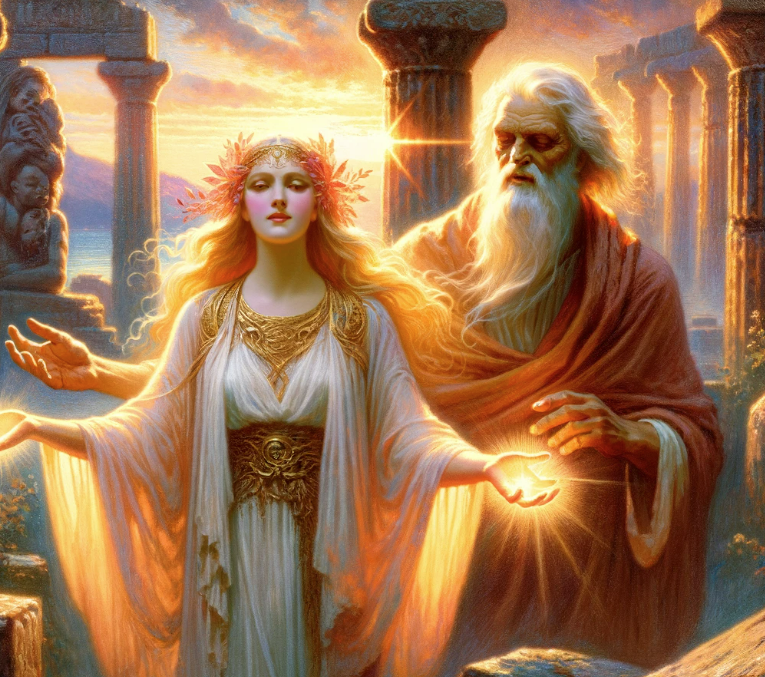Within the plethora of Greek myths that concern love and desire, one in particular stands out as noteworthy – the story of Eos and Tithonus. This myth explores themes of eternal love, the fleeting nature of life, and the stark reality of unfulfilled desires.
Read on to find out all about the tale of an immortal prince’s experience with a primordial goddess.
Who is Eos?
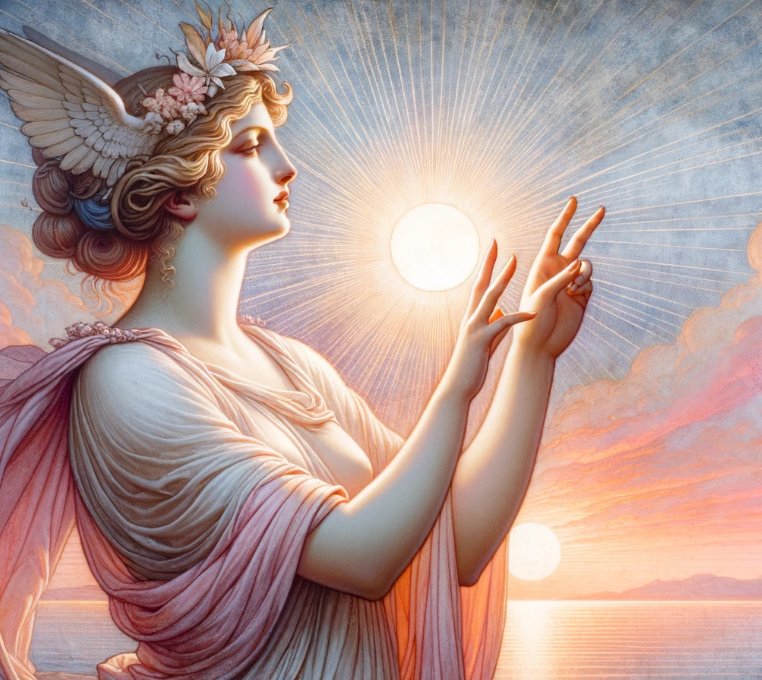
Eos, or Aurora, is a primordial deity representing dawn. Known as the bringer of light, she is depicted as a supremely beautiful woman who illuminates the dark sky at the break of day.
Eos, who dwells in a grand palace at the edge of Oceanus, plays a crucial role in the daily cycle, heralding the arrival of her brother Helios, the sun. In Greek mythology, she is renowned for her numerous love affairs and is often seen as a symbol of renewed hope and beginnings, as she brings the promise of a new day.
Who is Tithonus?
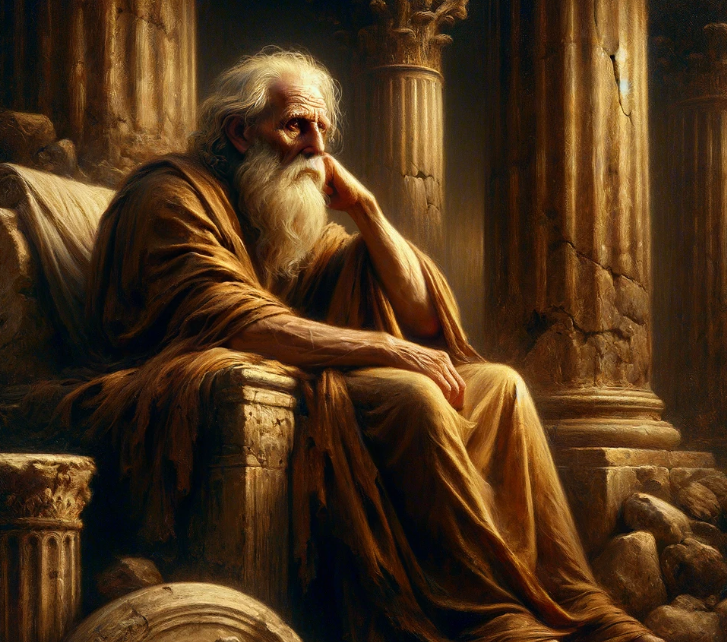
Tithonus, a mortal prince of Troy, is known for his extraordinary beauty and youth. He is the son of King Laomedon and the water nymph Strymo. As a mortal, his life is fleeting, in stark contrast to the immortals he finds himself entwined with.
Tithonus’s life takes a significant turn when he becomes the focus of Eos’s attention, leading to his tragic transformation. In Greek mythology, his story is less about his deeds and more about the cautionary tale of his prolonged life, serving as a reminder of the natural order and the limits of mortal existence.
Tragic Love and the Curse of Immortality
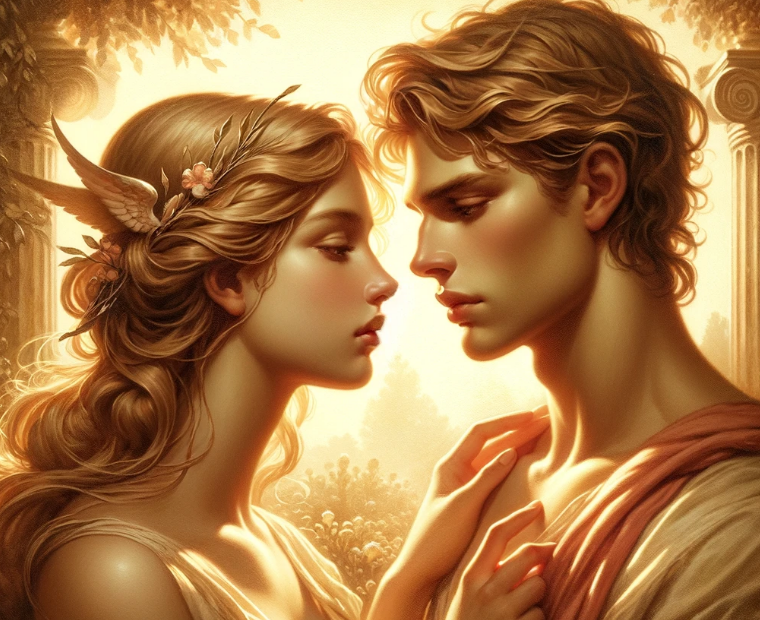
The myth unfolds when Eos, struck by the beauty of Tithonus, abducts him to be her consort. Overwhelmed by her love for the mortal prince, Eos petitions Zeus to grant Tithonus immortality, hoping to spend eternity with her beloved.
This moment marks the beginning of a love story that defies the boundaries between divine and mortal realms, and sets the stage for the ensuing tragedy.
Zeus, acquiescing to Eos’s plea, grants Tithonus immortality. However, the boon turns bittersweet as Eos forgets to ask for eternal youth along with it.
As time wears on, Tithonus ages, becoming increasingly frail and decrepit, while Eos retains her timeless beauty. The stark contrast between the lovers grows, illustrating the painful consequences of an unthoughtful wish.
Tithonus’s endless life becomes a curse, trapping him in an ever-aging body without the relief of death, which he longs for.
The Enduring Love of Eos
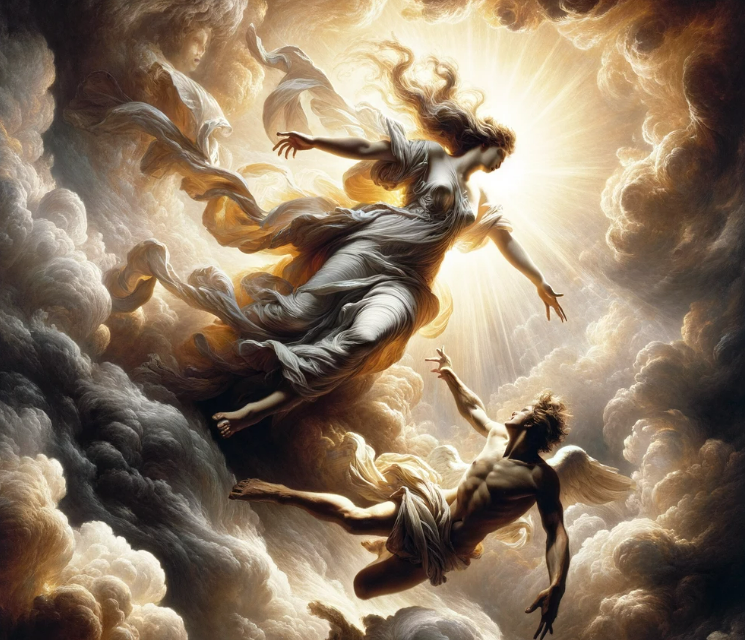
Despite the tragic fate that befalls Tithonus, Eos’s love never falters. Each morning, as she spreads the dawn, she visits Tithonus, now a mere shadow of the man he once was.
Her eternal love is a poignant aspect of the myth, as it highlights both her unwavering commitment and the sorrow of watching a loved one fade into nullity. According to some versions of the myth, Eos, in her mercy, turns Tithonus into a cicada, allowing him to continue his existence in a less burdensome form, his voice eternally present in the sound of the insects.
Lessons from the Myth
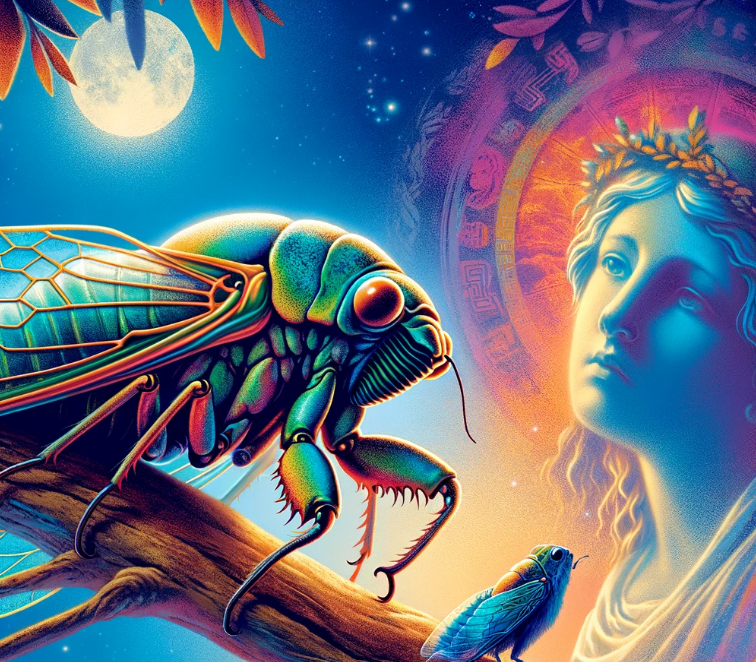
For the ancient Greeks, the myth of Eos and Tithonus offered deep insights into human desires and the natural order. It warns of the perils of wishing for eternal life, and of a wish that is not carefully considered. It also warns against eternal life for mortals and stresses the importance of accepting the inevitable cycle of life and death.
This story serves as a reminder of the value of living in the moment and the potential consequences of defying the natural progression of life.
The tale of Eos and Tithonus remains one of the most compelling narratives in Greek mythology, weaving together the themes of love, desire, and the harsh realities of immortality.
It reminds us of the transient nature of beauty and youth, the enduring power of love, and the importance of accepting the natural course of life. As each new dawn breaks, the myth of Eos and Tithonus continues to echo through time, an endless reminder of the delicate balance between life, love, and the inevitability of change.
Get in Touch
Thank you for reading our article about the eternal love of Tithonus and Eos. If you enjoyed this, you might also enjoy reading about Pasiphae and the Cretan Bull.
For any enquiries, please contact me at richard@mythologyplanet.com, or leave a message in the comment section below.
For a video representation of this story, check out this great YouTube video by See U In History / Mythology.
